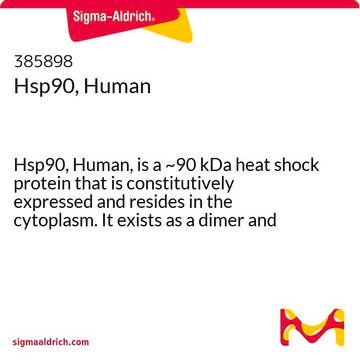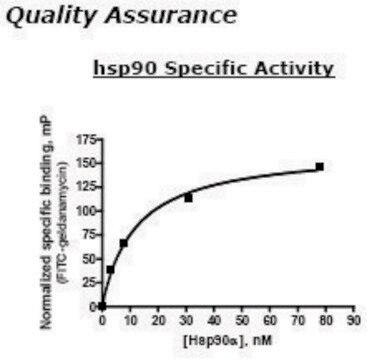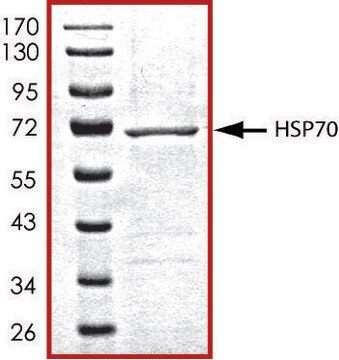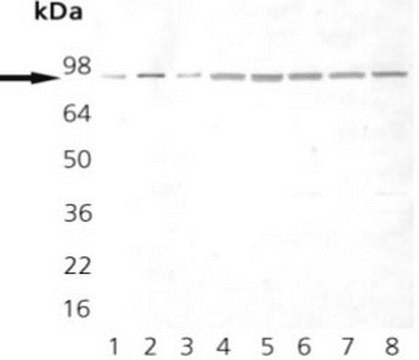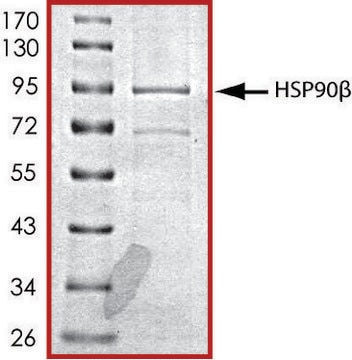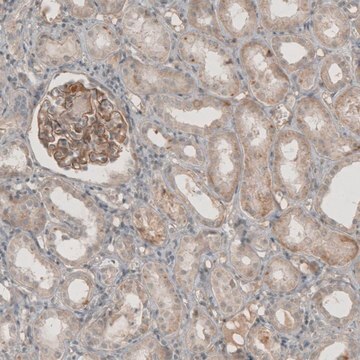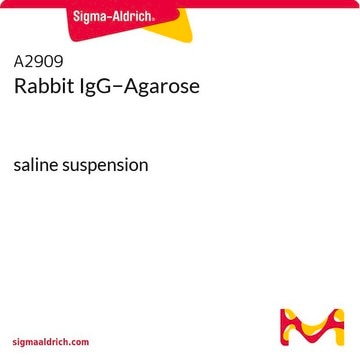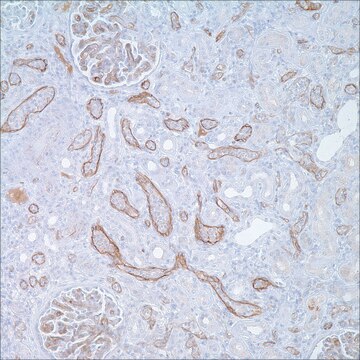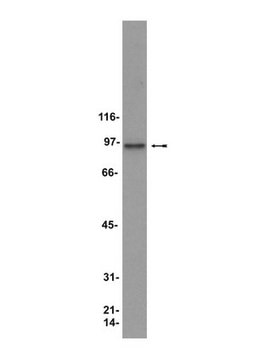SRP5191
HSP90 α, His tagged human
recombinant, expressed in baculovirus infected Sf9 cells, ≥70% (SDS-PAGE), buffered aqueous glycerol solution
Synonym(s):
FLJ31884, HSP86, HSP90AA1, HSP90N, HSPC1, HSPCA, HSPCAL1, HSPCAL4, HSPN, Hsp89, Hsp90, LAP2
About This Item
Recommended Products
biological source
human
recombinant
expressed in baculovirus infected Sf9 cells
assay
≥70% (SDS-PAGE)
form
buffered aqueous glycerol solution
mol wt
~94 kDa
technique(s)
cell culture | mammalian: suitable
solubility
water: soluble
suitability
suitable for molecular biology
NCBI accession no.
shipped in
dry ice
storage temp.
−70°C
Gene Information
human ... HSP90AA1(3320)
General description
Application
Biochem/physiol Actions
Physical form
Preparation Note
signalword
Danger
hcodes
Hazard Classifications
Eye Irrit. 2 - Repr. 1B - Skin Irrit. 2
wgk_germany
WGK 1
flash_point_f
Not applicable
flash_point_c
Not applicable
Certificates of Analysis (COA)
Search for Certificates of Analysis (COA) by entering the products Lot/Batch Number. Lot and Batch Numbers can be found on a product’s label following the words ‘Lot’ or ‘Batch’.
Already Own This Product?
Find documentation for the products that you have recently purchased in the Document Library.
Our team of scientists has experience in all areas of research including Life Science, Material Science, Chemical Synthesis, Chromatography, Analytical and many others.
Contact Technical Service